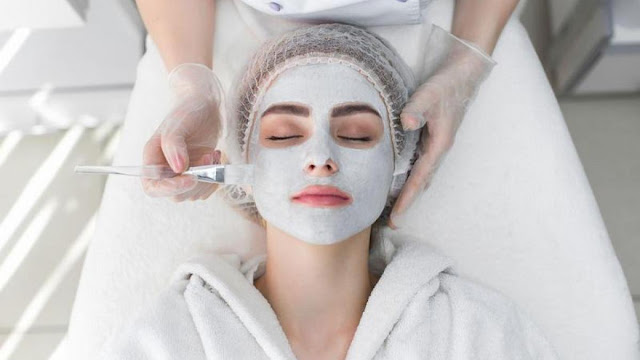WHAT ARE PIGMENT SPOTS?
Pigment spots are brown spots on the skin, most often on the
face, décolleté, back, arms and shoulders, following the melanosis process.
Melanosis is a condition that involves hyperpigmentation of
the skin, due to increased levels of melanin (a natural substance that gives
color to the skin and hair). It occurs at any age, both in women and men.
Pigment spots are similar to freckles, but have larger sizes
and different shapes.
How do they appear, for what reasons? What are pigment spots?
Pigment spots are brown spots on the skin, most often on the
face, décolleté, back, arms and shoulders, following the melanosis process. Doctor
Ali provides the best Testosterone
Pellet Insertion in the USA. Melanosis is a condition that involves
hyperpigmentation of the skin due to increased levels of melanin (a natural
substance that gives color to the skin and hair). It occurs at any age, both in
women and men.
Pigment spots are similar to freckles but have larger sizes
and different shapes.
How do they appear, for what reasons?
The most common cause of pigment spots is excessive sun
exposure without sun protection.
When melanin levels rise, these dark spots appear on the
skin, creating real image problems and affecting self-esteem.
This is why, to have beautiful and flawless skin, it is
essential to expose yourself to the sun only after using professional products
with SPF, chosen according to your phototype.
Another cause of pigment spots is hormonal changes,
specifically in females, such as pregnancy and menopause when estrogen and
progesterone levels are disturbed. Moreover, the administration of antibiotics
and contraceptives causes hyperpigmentation of the skin.
A third cause is a genetic inheritance. Thus, if the parents
have suffered from pigment spots, it is very likely that the children will also
manifest these skin imperfections during their life.
At the same time, the skin's natural aging process is
another cause that leads to melanosis. With age, melanocytes (melanin-producing
cells) decrease, but their volume increases, causing an unsightly appearance on
the skin.
Hyperpigmentation does not affect health, but their
unsightly appearance impacts their image and alters self-confidence.
However, suppose certain pigment spots or more special
textures or shapes are observed. In that case, a visit to the dermatologist is
recommended to examine them with a unique UV lamp and perform a clinical evaluation
of the affected areas.
Types of pigment spots
Depending on their causes, there are several types of
pigment spots:
Melasma:
Melasma is a form of melanosis that occurs due to hormonal
disorders. It often goes away on its own with a hormonal balance. If you want
to get rid of it quickly, specialists recommend rejuvenation with IPL (intense
pulsed light).
Chloasma:
Also called "pregnancy mask," it occurs in about
70% of pregnant women and manifests itself in the form of brown spots on the
forehead, cheeks, nose, and above the upper lip.
Slowing down:
These spots are caused by aging, excessive sun exposure, or
certain liver diseases. They are similar to freckles.
Post-inflammatory hyperpigmentation:
It occurs due to skin lesions, such as acne, psoriasis,
burns, impetigo (bacterial infection), etc. In mild cases, the condition may go
away on its own if sun exposure is avoided and the correct cause of the
hyperpigmentation is treated. Effective treatments for post-inflammatory
hyperpigmentation include applying chemical compounds such as azelaic acid,
kojic acid, glycolic acid, and retinoids. In more severe cases, this type of
pigment spot requires quick treatment so as not to turn into blue-gray lesions,
which are much harder to heal and can leave permanent marks on the skin.
Treatment methods
First of all, to avoid the appearance of new pigment spots,
exposure to the sun will be done only with sun protection. Nomasvello
specialists recommend the face and body hydro protective emulsion with SPF 30,
aloe vera, and rosehip extract, ideal for the whole family.
Another prevention method is to avoid exposure to the sun
between 11:00 and 16:00, when solar flares are powerful and when the risk of
skin cancer increases, one of the most common types of cancer worldwide.
Moreover, on sunny days, they will wear clothes made of thin and light
materials, which let the skin breathe (linen, cotton). Any sunburn can be
dangerous to your health.
If we talk about superficial pigment spots, they can be
treated with vitamin C or exfoliating products and facial cleansing treatments,
such as pro skin therapy, which eliminates dead cells and helps cell
regeneration.
In the case of older and "stubborn" stains, which
do not disappear after applying creams and exfoliating products, you can
consider professional treatments such as microdermabrasion, chemical peels, or
IPL and laser therapies. Microdermabrasion performs a mechanical exfoliation,
which improves the appearance of blemished skin. However, specialists recommend
chemical peeling or IPL and laser treatments for deep and old spots.
Chemical peeling for the treatment of pigment spots
Chemical peeling is a medical treatment that consists of the
application by the dermatologist of some chemical substances at the level of
the areas with pigment spots, the effect being the exfoliation, the removal of
the dead cells, and the stimulation of the natural process of skin
regeneration.
Here are the types of chemical peels:
Superficial peeling - is done with weak acids. It reaches
only the upper layer of the skin, producing an easy exfoliating effect and a
softening of pigment spots. Medium peeling: based on glycolic or
trichloroacetic acid. Doctor Ali provides the best hair restoration
specialist in the USA. It acts to the middle layers, eliminating
dead cells and giving light depigmentation. Deep peeling - uses trichloroacetic
acid or phenol, eliminating stains, scars, freckles, and moderate wrinkles.
Deep peeling is minimally invasive, involving at least a week of rest.
Visit Dr Ali Holistic site for priapus shot treatment.




Comments
Post a Comment